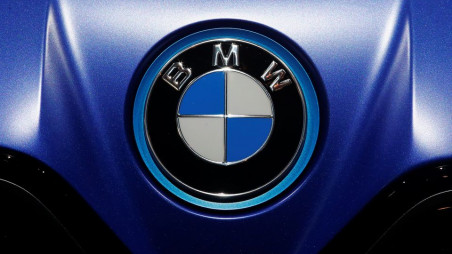BMW boosts profitability despite China, tariff woes
The carmaker, which also makes Mini and Rolls‑Royce cars, cut its outlook for 2025 in October due to tariff costs and slowing sales in key market China, where European manufacturers are losing sales to local rivals

German carmaker BMW on Wednesday (5 November) reported a rise in profitability in the last quarter despite facing challenges from slowing Chinese sales and tariffs.
The premium manufacturer posted an operating profit margin in its auto unit — closely watched by investors — of 5.2% in the July–September period, compared to 2.3% in the same period last year.
However, tariff costs in the United States and the EU — BMW exports electric vehicles made in China that are subject to European levies — weighed on margins, it said.
Oliver Zipse, chief executive officer of BMW, said the company was proving itself "resilient" despite numerous difficulties.
These included "a shifting geopolitical framework with trade impacts such as tariffs, as well as a rapidly evolving market in China," he said.
The carmaker, which also makes Mini and Rolls‑Royce cars, cut its outlook for 2025 in October due to tariff costs and slowing sales in key market China, where European manufacturers are losing sales to local rivals.
Nevertheless, BMW is seen as better placed to ride out the tariff blitz unleashed by US President Donald Trump than other German automakers, as it has large American operations.
The group's net profit in the third quarter came in at 1.7 billion euros ($1.9 billion), sharply up from 476 million euros in the same period in 2024, when results were heavily impacted by a massive vehicle recall.
Revenues were flat at 32.2 billion euros.



 Keep updated, follow The Business Standard's Google news channel
Keep updated, follow The Business Standard's Google news channel
















